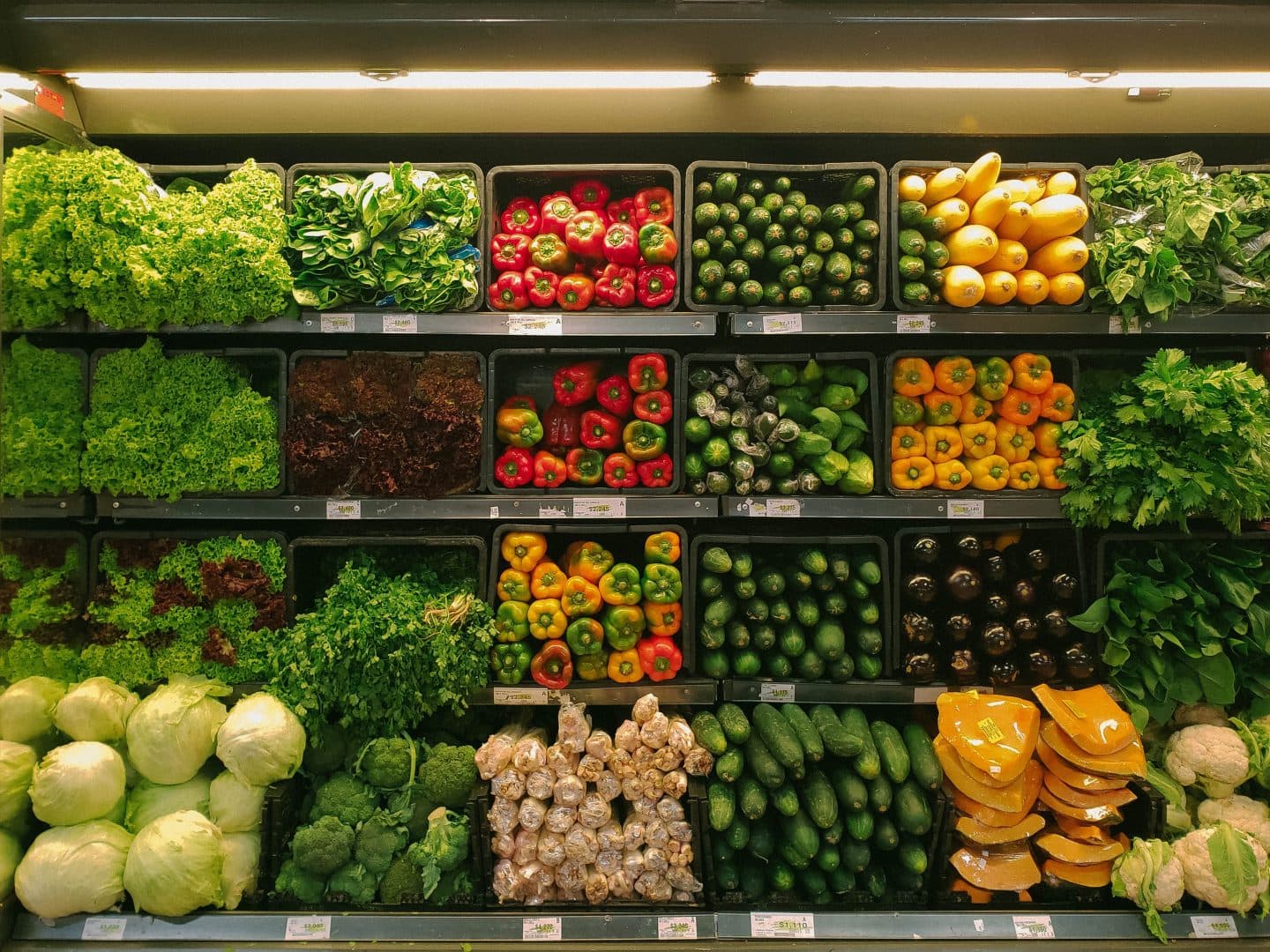
Are you tired of overspending on your weekly supermarket food shop? If so, you’re not alone. With the cost of living forever on the increase, we have to do all we can to save money. Many of us find ourselves grappling with rising food prices and an increasing grocery budget. When I look at what my weekly shops were costing me this time last year to now, the rise is staggering. For many people, the costs they were already paying were too high, with food banks seeing a significant increase in referrals. Although there isn’t much we can do about how much items cost with a few smart strategies and a dash of planning, there are ways to significantly reduce your supermarket expenses without compromising on the quality or nutrition of your meals. I’ve put together 10 effective ways to save money on your supermarket food shop that I hope will help.
9 Grocery Delivery Hacks To Save Money
-
Plan Your Meals and Make a List in Advance
One of the key secrets to saving money at the supermarket is to plan all of your meals and snacks in advance and create a shopping list accordingly. By knowing exactly what you need, you’ll avoid impulsive purchases and unnecessary trips to the shop. Stick to your list and resist the temptation of those eye-catching displays and offers that can quickly inflate your bill. Make sure you raid your cupboards so you don’t purchase anything you already have, and if you can – plan meals around what you already have in the cupboard!

-
Embrace Seasonal and Local Produce
Choosing seasonal fruits and vegetables supports local farmers and saves you money. Seasonal produce tends to be more abundant, tastier, fresher, and cheaper than out-of-season items that need to be imported. Visit your local farm shop or check the supermarket for locally sourced options to get the best value for your money. Be cautious of larger corporations that pretend to be Farm Shops. These places are often overpriced, and the items are imported or bought in. Fresh and local is where you will get the best bang for your buck!
-
Compare Prices and Shop Around
Don’t settle for the first supermarket you come across. Take the time to compare prices between different shops in your area. Online grocery shopping platforms also offer the convenience of comparing prices at the click of a button. By being a savvy shopper, you can identify the best deals and save a substantial amount on your weekly shop. This is time-consuming, so you need to weigh up the cost of your time versus what you will save overall. There are some comparison websites you can use to find the cheapest supermarket, but they are not always accurate. Be mindful of the cost of traveling to different places, too, if you don’t have many places within close proximity. You can soon spend more than you save, so be careful.
-
Buy in Bulk
Buying in bulk can lead to significant savings for non-perishable items that you frequently use. Staples such as rice, pasta, canned goods, and cleaning supplies often come at discounted prices when purchased in larger quantities. Be cautious, however, and only buy what you know you will consume before the expiration date. Check the amount per 100g/litre etc, and compare with the price of smaller items to make sure you are actually getting a saving. Only buy what you will actually use, and don’t be encouraged to buy something just for the sake of it. If you very rarely eat rice buying 10kg of it is probably not the most cost-effective way of doing things! If you have the storage, though, buying in bulk can be really money-saving long term.

-
Be Mindful of Brand Choices
While brand loyalty can be tempting, opting for store-brand or generic products can offer substantial savings without compromising quality. The same manufacturers produce many supermarket own-label products as popular brands, offering similar taste and quality at a lower price point. I hate to admit it, but I used to be a real brand snob for certain items, but the price difference is so different I simply cannot justify buying something for the name. There are still certain products I won’t compromise on, but this is through trying and testing in advance. I am always open to a cheaper swap now and this has made a huge difference in our weekly bill.
-
Utilise Loyalty Programs and Vouchers
Take full advantage of loyalty programs and store-specific vouchers offered by supermarkets. Sign up for loyalty cards and enjoy exclusive discounts, cashback offers, and personalised vouchers. Watch for voucher codes in newspapers or online platforms dedicated to sharing money-saving deals. Tesco Clubcard and Sainsbury’s Nectar Card have both saved me £££ over the years and definitely worth applying for.
-
Avoid Shopping Hungry
Shopping on an empty stomach can be a recipe for disaster when it comes to sticking to your budget. Hunger pangs can lead to impulse buys and unnecessary snacks. Eat a satisfying meal or snack before heading to the supermarket to avoid succumbing to these temptations. Personally, I opt for shopping online to avoid any unnecessary temptation. If you can’t trust yourself not to be swayed by the marketing, then avoid the shop altogether and go virtual!

-
Minimise Food Waste
One of the biggest places we were wasting money was through food waste. Throwing leftovers away, not eating foods before their use by dates and just opting for takeout instead of the meal planned all contributed. Reducing food waste not only benefits the environment but also helps you save money. Plan your meals based on ingredients you already have at home, and be creative with using leftovers. Proper storage and labelling can also help extend the shelf life of perishable items, allowing you to use them before they spoil. I recently purchased loads of *these glass containers that can be frozen or kept in the fridge without spoiling, and they stack nicely too!
-
Skip the Convenience Foods
It goes without saying that pre-packaged convenience foods are often more expensive than making the same dish from scratch yourself. Embrace your inner chef and prepare meals at home using fresh ingredients for a fraction of the price. Cooking in batches and freezing leftovers for future use can save you both time and money.

-
Consider Discount Stores
While traditional supermarkets offer a wide range of products, discount stores can be a hidden gem for finding affordable groceries. Shops like Aldi and Lidl are known for their low prices and surprisingly good quality. If you aren’t already then explore these options and see if they can help you save significantly on your weekly food shop.
In Conclusion
Reducing your supermarket food shop costs doesn’t have to be a daunting task. Plan ahead, compare prices, embrace seasonal produce, and be mindful of your choices. With a little effort and a savvy approach, you’ll soon see the impact on your wallet, allowing you to save more for the things that truly matter. Happy shopping and happy saving! If you have any other great suggestions to save money on your food shop, then leave them below in the comments to help others!
You May Also Like:
Smart Ways to Save for Christmas
Delicious and Healthy Pasta Alternatives for Calorie-Conscious Foodies
The Best Lemon Drizzle Blondies Recipe
Easy Egg Fried Rice On A Budget
Thank you for stopping by! Check out my last post here.
Love as always!

 More From Me
More From Me
Want to find out more about me? Head over to this page. If you like reading posts like this, then you might want to follow me over on Bloglovin. Don’t forget you can find me on Instagram, Facebook, Twitter & YouTube.
As always, words, views and opinions are honest and my own. Links marked with “*” are affiliate links. This does not cost you anything additional, but it may mean I earn a small percentage from any sales. For more information about any of this, please head over to this page.
